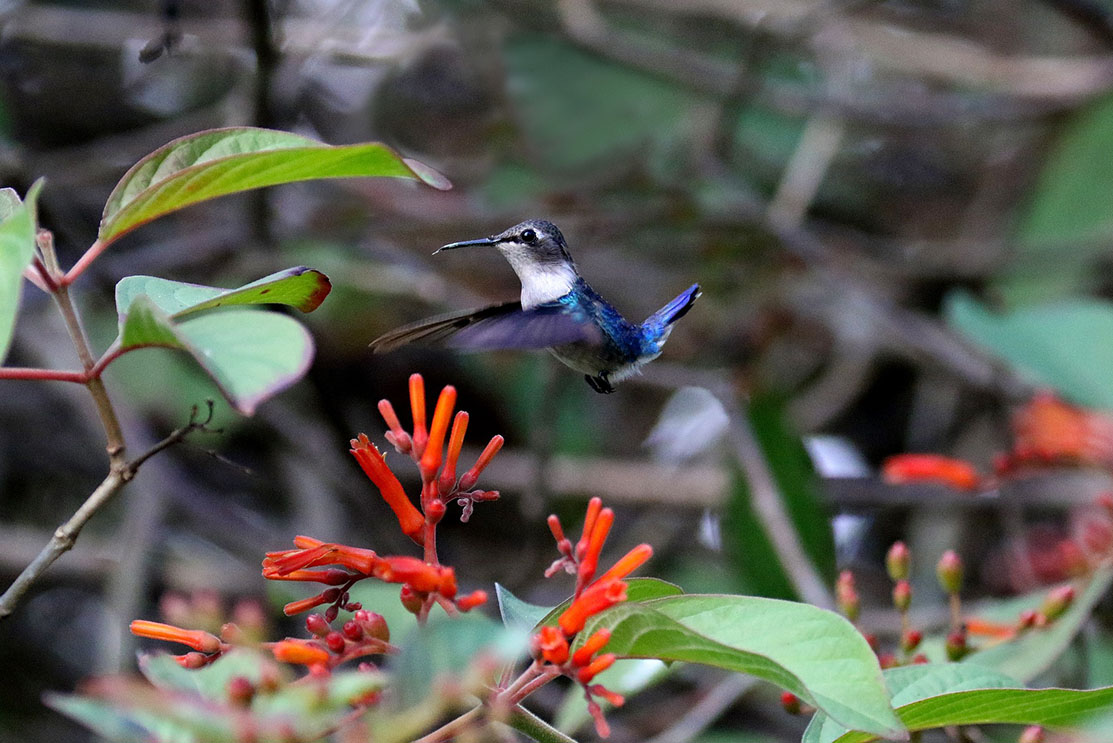The Lesson of the Hummingbird

There are always different stories and metaphors to understanding collaborative practice. Certainly, we can all understand it concretely – any one of us can describe the process of collaboration to the uninitiated and as well, any one of us can engage in deeper conversation about collaboration and its impact upon our clients’ lives. But there are lessons all around us which can lead us to a more intuitive understanding and practice, if we will but take the time to observe. My lesson was taught by a group of hummingbirds.
Flighty, skittish and argumentative, hummingbirds are elusive creatures that I delight in watching. But I had to lure them to my home and the mere placement of a hummingbird feeder was not enough to encourage their presence. There must be cover for their protection. There must be shade, so their nectar does not become too hot and mold. Several feeders turned out to be better than one because they don’t share easily with one another. And most important, the nectar must be freshened and the feeder must be cleaned frequently and consistently.
I had my feeders in place for a whole season, with nary a visitor. They were around, I could hear them but they would not come to my feeder. I became careless and less attentive to cleaning and in no time, my feeder had black mold. I packed up my feeder for the winter. The second season, I tried again and started to experience some success but again, the tiresome chore of changing the nectar with consistency became a problem and my hummingbirds went away.
The third season I tried again, and this year there were two feeders set out, as well as some attractive hanging flowering plants. I cleaned my feeders and placed fresh nectar in them at least once a week (and twice a week when it was in the 90s) and I had hummingbirds! Trusting, thirsty, responsive hummingbirds became my tiny companions. Morning and evening they came to my deck, and enjoyed their nectar. I grew accustomed to their calls, and began to recognize individuals among them. We created trust and reliance between us. They would drink and skitter about in the tree, buzzing close to my head as they moved from feeder to flowers and back to feeder. Our system was seamless.
And then, I made a mistake. In my human, rush-to-get-things-done way, I made a mistake. It had been a stinking hot week and I decided to really clean the feeders by running them through the dishwasher and I took them all down, dumped their contents and then ran them through the dishwasher. But it was late in the day and so I refilled them and hung them the next morning. And guess what? No hummingbirds.
I had broken trust in our fragile little alliance. In my rush to complete a chore and make everything lovely for the hummingbirds, I didn’t pause to see how that decision would affect them. I didn’t realize that I was taking away the nectar for the evening, and that in doing so, I was breaking trust. I had a goal – to clean the feeders – but that goal was not the hummingbirds’ goal. I acted upon my goal without consulting my alliance, without thinking through potential ramifications and I broke trust.
How often as collaborative practitioners do we do just that? We see the goal of finality – its right ahead of us and we grab at it. And too often, we fail to realize until it’s too late that our collaborative participants are not ready or adequately prepared to take that big a step. We work methodically and respectfully throughout the process, and then we attempt to race through the final few steps. It seems efficient to us and it gets the job done, but in our haste, we lose sight of the fact that this is the participants’ process and we need to honor that process – we are obliged to honor that process – by not rushing through the final moments.
Well, of course, the hummingbirds came back. It took a day or so but soon we were back into our little regimen. And so do we often bring our participants back into the collaborative process. We pause, we regroup, we acknowledge the misstep and we proceed forward. But how unnecessary is it to have to go through those steps? If we can maintain our focus on the process and not upon the final result, then our collaborative process becomes seamless, intuitive and instinctual.

 "Jennifer E. Davis has been a practicing lawyer since 1987, and has had an exclusive focus upon the areas of Family Law since 1992. She has a passion for alternative dispute resolution, which includes collaborative law, mediation and the conduction of settlement negotiations. Because she is a skilled and competent litigator with many years of courtroom experience, she brings a high level of understanding to the needs of families to resolve their issues outside of a courtroom whenever possible."
"Jennifer E. Davis has been a practicing lawyer since 1987, and has had an exclusive focus upon the areas of Family Law since 1992. She has a passion for alternative dispute resolution, which includes collaborative law, mediation and the conduction of settlement negotiations. Because she is a skilled and competent litigator with many years of courtroom experience, she brings a high level of understanding to the needs of families to resolve their issues outside of a courtroom whenever possible."




